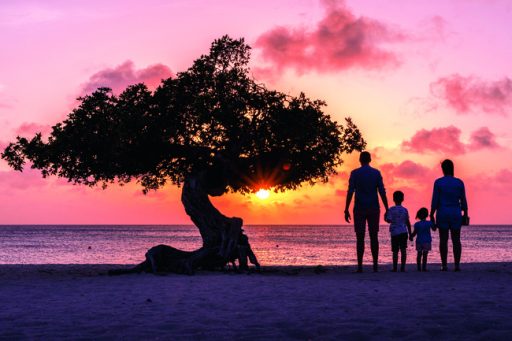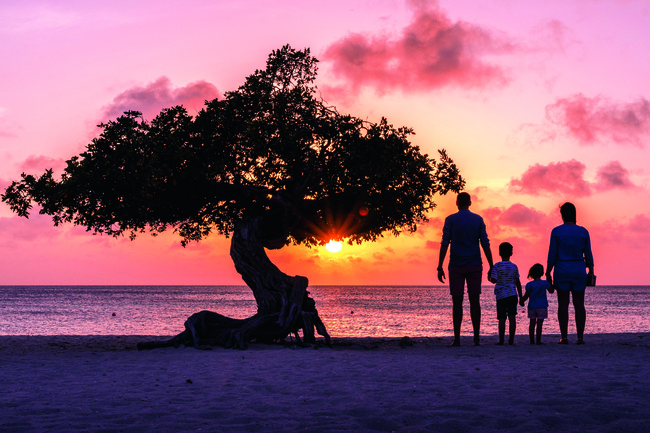As Sunshine Saturday (6 January) approaches – the day famously known as the year’s peak for booking getaways – a specialist reveals why a holiday is not just desirable but essential for our brain.
TV psychotherapist Anna Williamson discloses how the act of researching and booking holidays positively alters our brain chemistry.
The 42-year-old Hertfordshire resident also unveils why a short weekend break might trump a longer vacation and pinpoints the moment during a trip when we truly begin to unwind.
Anna addresses a crucial query: what is the ideal number of holidays needed annually for restfulness?
“I would say we don’t just want a holiday… we need it,” states Anna, collaborating with TUI on this initiative.
“After December’s festivities, many experience a hormone crash. Our brain chemistry, once lifted by joy, craves another oxytocin and dopamine hit – our brain’s reward, comfort, and love hormones. This craving sparks the rush to book a holiday in January, giving rise to the Sunshine Saturday phenomenon,” she explains.
Research indicates that ‘braincations’ trigger neurotransmitter release, boosting mood, reducing stress, and enhancing cognitive function. Holidays not only foster creative thinking but also have long-term benefits on the nervous system, aiding in recovery from ailments like strokes and improving heart health.
TUI’s study suggests that most Brits start hunting for their annual holiday on New Year’s Day, with about 37% likely to book a summer holiday during this period. Finding the ideal holiday typically takes an adult around 53 hours.
So, what’s the optimal number of holidays per year? Anna elaborates: “While there’s no fixed time needed for health, at least two holidays yearly is a reasonable target for most. Regular breaks every two months, even brief ones, are crucial to prevent anxiety, stress, fatigue, and physical illness. Alternatively, some research advocates for frequent short breaks rather than a single annual holiday.”
Regarding the type of holiday – be it a weekend city break or a fortnight-long beach vacation – the choice is personal, but there are intriguing considerations.
“Studies show people feel most rested three days into a holiday. However, for those preferring longer vacations, eight days might be ideal. But remember, the pressure of an annual holiday can sometimes be counterproductive,” Anna notes.
Planning a trip also positively impacts the brain. “The mere act of browsing holiday deals activates our brain’s reward system, producing dopamine and replicating sensations akin to enjoying a meal, shopping, or intimacy,” Anna adds.
TUI’s previous research reveals that Brits reach a ‘peak’ holiday feeling 43 hours into a trip, but this feeling fades around 3.7 days after returning. Over 20% book their next holiday within a month of returning.
TUI anticipates stronger sales this January compared to January 2022 and January 2020, pre-pandemic.
Holidays also benefit sleep patterns, with effects lasting up to two weeks post-return. The activities undertaken during the holiday also contribute to the level of restfulness experienced afterwards.
“Engaging in novel experiences, like seeing a new hotel room or dipping in the pool, gives the brain a ‘novelty’ hit. Even meditating during a trip can prolong the ‘holiday high’,” says Anna.
Anna advises: “Be clear about your holiday goals, whether for relaxation or exploration. Picking the right travel partner is crucial. Balance enjoyment with some exercise, portion control, and hydration. Regular walks ensure vitamin D intake and physical health benefits.”
Anna herself enjoys regular breaks, fitting with her family’s “freelance lifestyle”. “We love family holidays and try to get away four times a year. I also plan couple’s retreats and trips with my mum and girlfriends. Holidays are vital for distancing from daily stress and improving connection and communication,” she concludes.
After booking a holiday, 65% of people feel ‘excited’, 35% feel ‘satisfied’, and 34% feel more cheerful. European beach breaks are a top choice, with various durations preferred.
Phillip Iveson, TUI UK & I’s commercial director, comments: “Post-Christmas, the demand for holiday bookings skyrockets. With our extensive deals and options catering to all preferences, we’re ready to welcome customers for their travel plans this year.”
FACT BOX: TOP NINE REASONS FOR BOOKING A SUMMER HOLIDAY NOW
- To have something to look forward to (44%)
- It’s exciting looking for somewhere to go (33%)
- I think it’s cheaper to book then (25%)
- It helps get me/us through the most miserable part of the year (23%)
- I feel we physically and emotionally need a holiday (22%)
- Always book a summer holiday after Christmas (20%)
- We have to book them off work before other people get that time off 12%)
- We are exhausted after Christmas and booking a holiday gives us a buzz (12%)
- We’re both off work so it’s easier to find the time to look around (11%)







